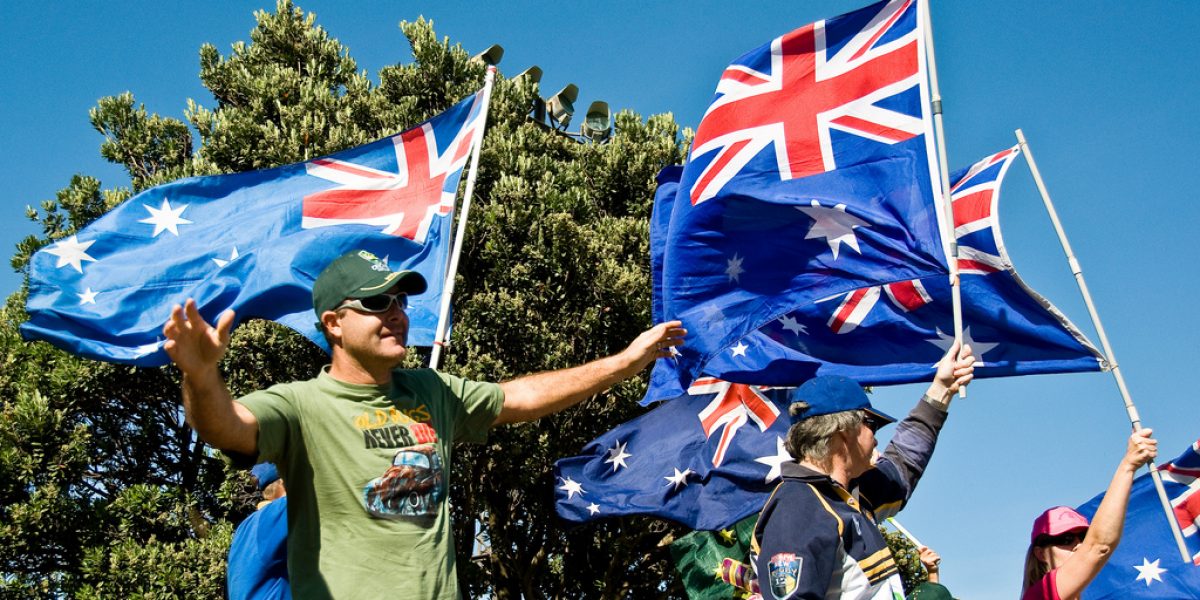It would come as no surprise if the controversy over the Chair’s position eclipsed other activity at Addis. Also there in January were the Foreign Ministers of Australia and New Zealand.
Australia’s Minister of Foreign Affairs Kevin Rudd was pictured on the Department of Foreign Affairs and Trade website this year with current AU Commission Chairman Jean Ping, pledging strong support from Australia for capacity building in the Commission. In 2011 Mr Rudd addressed the AU Executive Council, to emphasise Australia’s ‘perhaps unique’ perspective. This consisted, he explained, of not being North American or European, but ‘simply Australian’, from a nation ‘surrounded by developing countries’, on a ‘continent of climatic extremes’, which had ‘secured prosperity’ through industries familiar to Africa (agriculture, mining, forestry and fisheries), and one which worked for regional and global security, including on the Continent. Australia was home to many people of African descent, almost a quarter of a million. Economic linkages included a new wave of engagement and investment in Africa by companies in Australia’s booming mining sector.
Australia had a ‘new confidence in Africa’s future’, he concluded. His government was ‘expanding its relations’, working with Africa in various international forums, and sharing prosperity (Australia’s Official Development Assistance to the region had doubled in three years; the scholarship programme for Africa was expanding rapidly, to 1000 a year by 2013). Australia wished to ’embrace a new engagement with this continent for the future’.
New Zealand’s Minister of Foreign Affairs, Murray McCully acknowledged in his written statement of 27 January 2012 that this was his first Ministerial visit to the African Union. Africa’s place on the agenda of the UN Security Council and the growth of economic opportunity in Africa were factors leading New Zealand to intend ‘to engage more closely in Africa’, he said. New Zealand had a strong interest too in the UN (supporting a bigger role for Africa in a reformed Security Council), in peace operations (including in Africa), and in trade, and it had expertise in agriculture to share. Its modest ODA efforts in Africa added up to almost ZAR 300 million in 2011 (counting contributions to multilateral development programmes and humanitarian relief, as well as small activities administered through New Zealand). New Zealand looked ‘equally to enhancing engagement with the Union, with the AU Commission, as well as with its member states’, the Minister concluded.
Not mentioned directly was each country’s campaign for a non-permanent seat on the UN Security Council. Australia is standing for election at the UN General Assembly in October this year (for a term from 2013-14). Its bid is the subject of some scorn among conservatives and ‘realists’ at home, and when Mr Rudd’s term as Foreign Minister was heading to its end recently commentators were quick to describe the Australian campaign as ‘faltering’ and to hope out loud that it would be dropped. In his own farewell to the job in February, Mr Rudd put a lot of emphasis on the campaign and the expansion of relations with Africa, signalling a possible new Embassy for Australia on the Continent, in Dakar, Senegal. We shall see how this unfolds: newly appointed Foreign Minister Bob Carr has indicated a continuing commitment to the UNSC bid.
New Zealand is aiming for an election late in 2014, for the term 2015-16. We might expect to see Minister McCully and other senior envoys from New Zealand turning up in Africa’s capitals eventually, and regularly at the African Union, as the campaign gets into a higher gear. The New Zealand campaign touches on themes that are familiar somehow: its location in a region of developing countries, New Zealand’s long and many commitments to international and regional security, and its multicultural perspective. The campaign works hard also with the idea of New Zealand as an ‘independent small state’ that emerged in the 1980s.
As Mr Rudd mentioned, the Australian diplomatic network in Africa may grow. At present it has seven diplomatic missions in AU member states: in Abuja, Accra, Addis Ababa, Cairo, Harare, Nairobi, Port Louis and Pretoria. A post in Dakar would go some way to plug an obvious gap. New Zealand has only two missions, in Cairo and Pretoria. It took the step in 2011 to appoint an Ambassador to the AU (and Ethiopia), resident in Wellington. For their part, African countries have established thirteen diplomatic posts in Australia and two in New Zealand. More cover the territory from Asian capitals such as Tokyo, Jakarta and Beijing.
Diplomatic representation aside, there’s a lot less on the record as to how Africans and their governments view Australia and New Zealand as potential or real partners. But the ambitions of Canberra and Wellington to engage with ‘Africa on the move’ remind us that diplomacy in our world of complex interdependence is seeking to write complicated agendas and promote multi-dimensional adjustments way beyond what might be the primary interest among member states in strengthening the African Union.
‘More diplomacy’ and ‘better leadership’ speak also to how the countries and people of Africa might choose to engage with potential far from the shores of the Continent itself. This potential might include economic and development opportunities, including through investment, trade, migration and development cooperation. In the past it has included cooperation on security, as in UN-mandated peacemaking and through participation in the UN Security Council. For Australia and New Zealand to succeed in their bids to take a seat on the Council again, strong support from Africa will be necessary.








